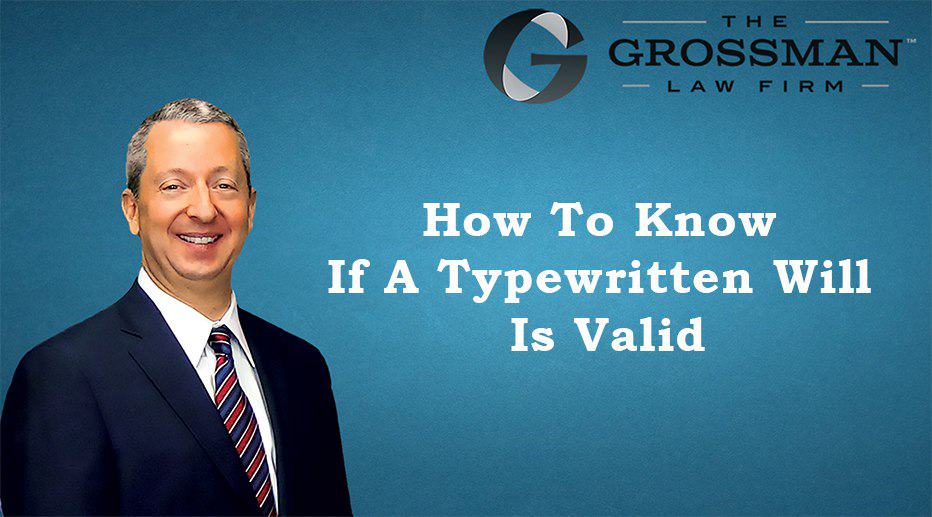
Attorney Scott Grossman discusses the four requirements in California for a valid typewritten and what they mean.
Probate is the judicial process whereby a will is “proved” in a court of law and accepted as a valid public document that is the true last testament of the deceased, or whereby the estate is settled according to the laws of intestacy in the state of residence of the deceased at the time of death in the absence of a legal will.

Attorney Scott Grossman discusses the four requirements in California for a valid typewritten and what they mean.

Attorney Scott Grossman discusses the final steps one must make before finally ending the probate process.

I’m not getting what I’m supposed to from my parents’ estate. What can I do about it?

The law for California will contests, probate litigation, and trust litigation is mostly found in the California Probate Code.

Accusing someone of altering or forging documents in a decedent’s Will or Trust is an extremely serious allegation.

If a trustee has mismanaged assets or property, which caused a significant loss of value, the first thing you want to do is determine how the estate was mismanaged.

If your parent had previously executed a will, and you believe that it has since been changed, it is possible that he or she was the victim of undue influence. You may be able to contest the will in the probate court and have it rendered invalid.

Failing to file the required tax returns may constitute a California breach of trust under state law. Trustees typically have a duty to file tax returns and pay any taxes that are due.

If you are the beneficiary of a California probate estate and suspect that the executor may be stealing estate property, it is important to act quickly. Waiting too long may make it impossible for you to ever receive the property to which you are entitled.

California has extremely strict rules about when an attorney may call himself a “specialist” in a particular area of law.